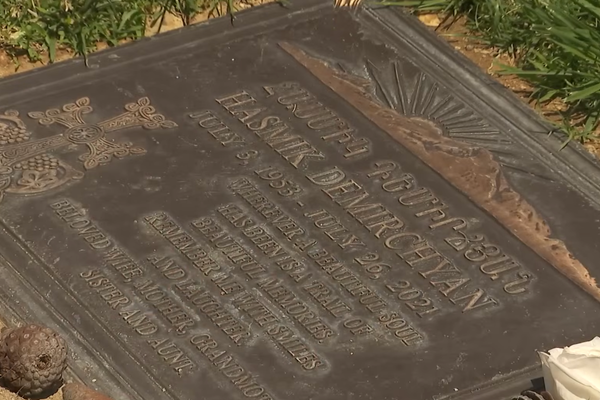
It is, perhaps, a curious indication of national genre snobbery that Ruth Rendell, surely one of our most silkily brilliant crime writers of any generation, died earlier this year with her oeuvre still largely untouched by British film-makers. Some respectable television adaptation, sure. A B-movie or two in the 80s, fine. But on the continent major film-makers – Claude Chabrol, Claude Miller, Pedro Almodovar – have known how to treat her nasty, needling narratives with the requisite style. To that group we can now add François Ozon, whose slinky, utterly delectable take on The New Girlfriend (Metrodome, 15) is both a liberal, Gallic-as-Gaultier interpretation, and as fitting a Rendell tribute as could have been released in the year of her passing.
A sly streak of Hitchcockian malevolence runs through much of Ozon’s best work, and such is the case here: a shimmering surface of black comedy doesn’t trivialise the perverse human impulses and desires that direct this tale of a young, secretive widower (Romain Duris) and his increasingly complex relationship with his late wife’s best friend (Anaïs Demoustier). To explain any further would be to defuse an elegantly arranged story told with all the pleasure and lip-licking aptitude for detail of a practised gossip. With its frisky performances and gorgeous, touch-of-caramel cinematography, it brings just a hint of warmth to Rendell’s signature froideur.
Ozon’s playfulness, of course, looks positively ascetic when placed beside the let-it-all-hang-out ebullience of Pitch Perfect 2 (Universal, 12), a sequel somehow even rowdier than its predecessor, and all the more appealing for it. With the first film already having effectively enlivened the old put-on-a-show formula for the Glee generation – motley university a cappella group survives discord, embarrassment and projectile vomiting to triumph – this one feels no need to re-explain or reinvent it. Instead, it’s straight in with the catchy, X Factor-style pop covers, chipper self-empowerment and broad, big-swinging gags – mostly courtesy of Rebel Wilson, a hoot whether bellowing Pat Benatar or muttering throwaway obscenities. Elizabeth Banks, moving smoothly behind the camera, gathers up all the stray pieces with bright, spit-spot efficiency, with scarcely any story glue to bind it all together; rather like its improbably harmonised Barden Bellas, the film gets by on fearsome pluck.
So, for the first time in ages, does Keanu Reeves, an actor whose dopey, dude-ish charm has, in recent, years crossed the line into sheer inertia. Not so in John Wick (Warner, 15), a cracking, straight-up revenge thriller that largely resists the modern action film’s tendency toward snide irony. There are actual human stakes – simple but sturdy ones – in this story of a retired hitman out for justice after a Russian mob yob kills his dog. (If you’re the type to question the magnitude of this crime, move right along.) It sounds nothing special on paper, which is true of the best exploitation films: it’s all in the bloody execution. Director Chad Stahelski paces the hunt with patient menace, pulling out the big guns to slamming effect when required, and Reeves is all grim, stealthy business at its centre.
I wouldn’t mind if he rolled into the flat Norfolk landscape of The Goob (Soda, 18) to dispatch a thug or two – the baleful presence of Sean Harris hangs heavily over Guy Myhill’s rustically lyrical coming-of-age story, in which a teenage boy (gangly newcomer Liam Walpole) learns to face his mother’s abusive partner (Harris) head on. It’s made with intelligence and integrity, though its emotional rewards don’t quite break open a film that seems persistently, oppressively, in a mood.
There’s lots of thick, sour atmosphere to wade through, too, in this week’s online-only pick: American director Riley Stearns’s smart, snappish debut film Faults, now available on iTunes and Amazon, among other outlets. Yet an exciting black comedy bristles beneath its severe surface: Leland Orser stars as a down-and-out motivational speaker hired to kidnap and deprogramme a young woman (Mary Elizabeth Winstead) from the doomsday cult that has enveloped her. There’s an awareness here of both the absurdity of such institutions and the profound effectiveness of their subjects; Stearns’s humour follows in a similar, sternly hilarious vein, drawing lines for a deranged psychological battle fiercely fought by its two excellent leads. A hit at this year’s South by Southwest festival, it shouldn’t have flown so far under the radar.







